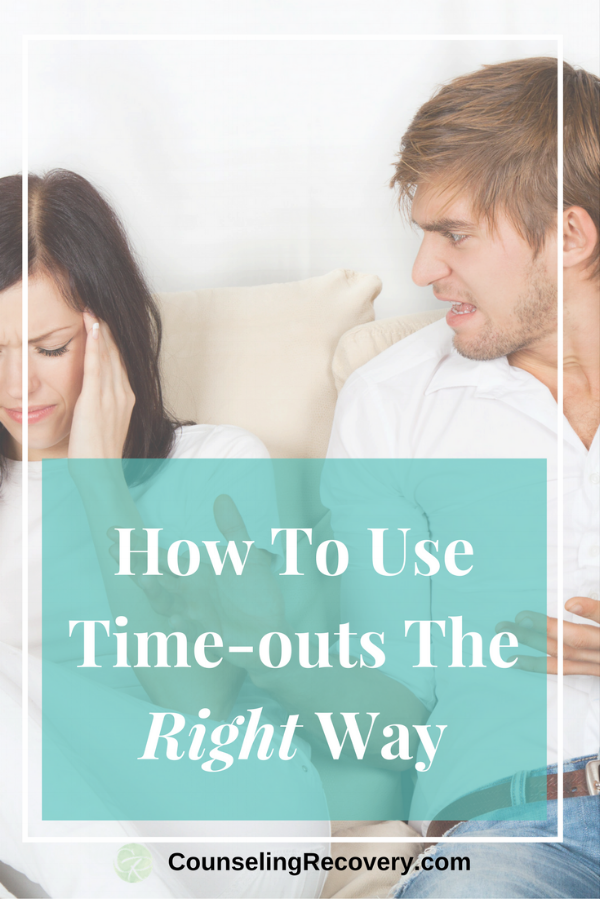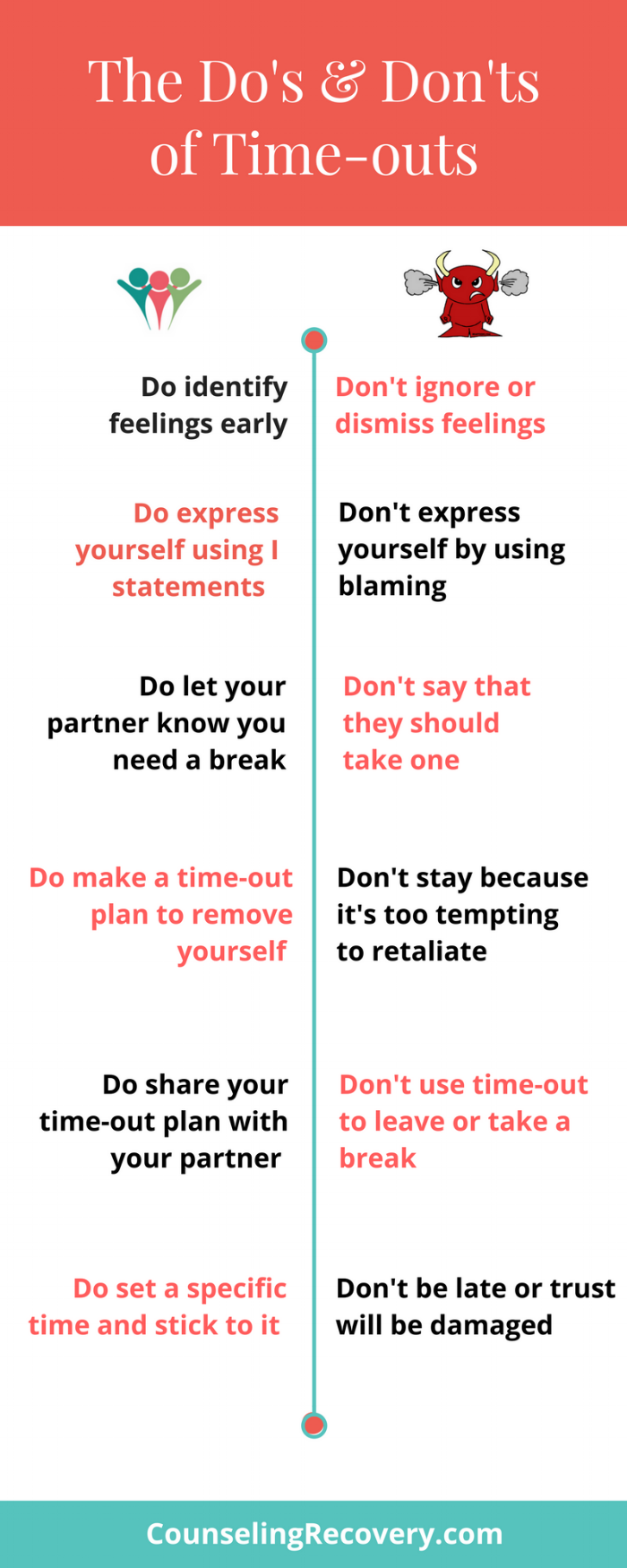The Rules of Taking An Effective Time-Out
Most people don’t know when and how to leave an argument without causing more damage.
Instead, they stay in the argument too long which increases the likelihood of verbal or physical abuse. Name-calling and intense blaming are common behaviors that most people tend to minimize because so many people do it.
But that doesn’t make them healthy.
When you know how and when to leave a situation you can keep your self and your loved ones safe. That is what you’ll learn in this blog.
It's called a time-out.
Most of us have used it with our kids but it's very effective with adults! It gives you a reason to remove yourself from the situation so you can calm down.
Time-outs keep people safe. It's not just leaving the situation, it's how you leave that makes the difference. Here are the steps for an effective time-out.
Steps for Time-out
Recognize your early signs of anger. Some of these include: rapid heart beat, sweating, feeling anxious, irritable, or confused, negative thinking, blaming others, or using substances to receive stress, etc.
Pay attention to what triggers you. Make a list of the situations that upset you. Not feeling heard, or feeling criticized are common triggers. Try not to judge yourself here!
Make a plan to handle the upset. Figure out what you need. Does taking a walk help or calling a friend? Would listening to music relax you or writing in a journal?
Separating yourself is what makes the time-out most effective. Staying in the same room keeps the argument going.
Explain the time-out to your partner before using it. "When I start getting upset, I'm going to take a walk. I'll be back in 30 minutes." If trust has been broken, your partner might react negatively. Don't get defensive. Instead validate their point of view. Showing that you understand their upset even if you don't agree is very effective.
Set up your time-out. Take no more than 20-30 minutes (to avoid it becoming leisure time) and choose a safe place to go. Leave the house if possible to avoid continuing the fight.
Additional Tips:
Return at the agreed upon time. This builds trust.
Offer to resume the discussion if you both are ready to talk calmly.
When resuming the discussion, focus on your concerns and what you need.
Get support but don't just fall into blame.
Avoid criticism. Stick to the facts.
If you need more time before talking it out, say so.
Avoiding Problems
Here's one thing you don't want to do.
Don't tell your partner they need a time-out, they'll get defensive! Even if you think they need one, don't go there.
Note: Over time, if your partner doesn't respect the time-out, this may indicate abusive behavior. Following you during time-outs, preventing you from leaving or any unwanted physical contact are signs of abuse.
Please seek professional help if needed.
The Benefits of Time-out
Using time-outs effectively keeps the argument from escalating. Instead time-out helps you stay in control of your reactions. This can restore your own self-esteem and increase trust with your partner.
Time-outs are also great role-modeling for kids. Imagine if your parents used time-outs to control themselves instead of screaming or hitting?
How would that have changed your attitudes about anger?
Final Thoughts
Time-outs are a powerful way to normalize anger and express your feelings instead of blowing up.
While it’s normal to get angry, when you can catch it early, you are more likely to be able to avoid abusive anger and keep everyone including yourself safe.
I’ve created a free 5 day email course on Catching Your Anger Before It Hurts. This course is filled with practical tips that really work!



